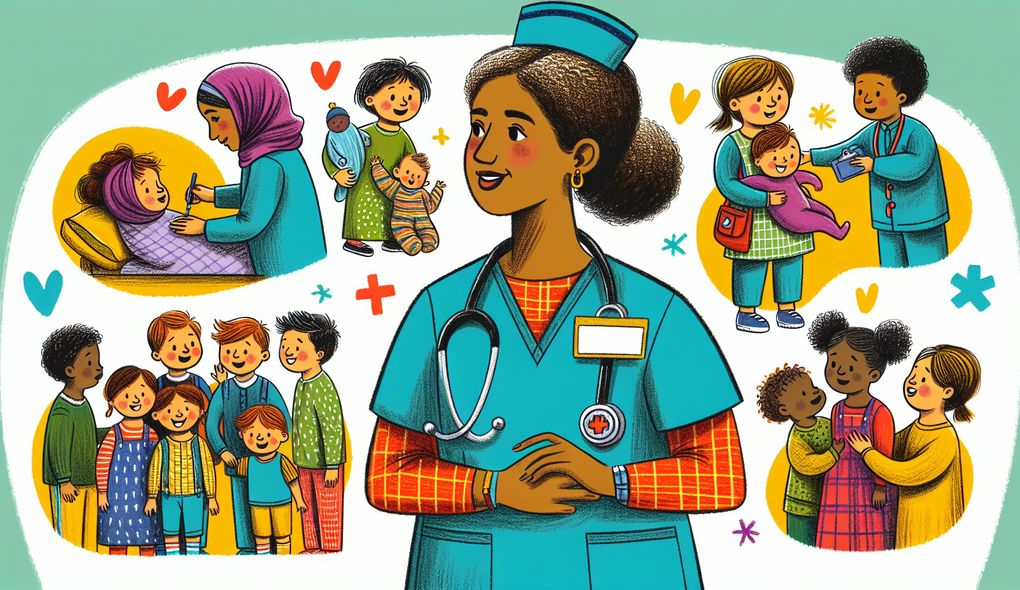Tell us about a time when you had to provide emotional support to a patient's family during a difficult diagnosis.
JUNIOR LEVEL

Sample answer to the question:
There was a time when I had to provide emotional support to a patient's family during a difficult diagnosis. The family of a three-year-old child came to our clinic for a routine check-up, but during the examination, our pediatrician noticed some abnormalities in the child's physical development. After running some tests, we discovered that the child had a rare genetic disorder that would require extensive medical intervention. I sat down with the family and explained the diagnosis in detail, answering all their questions and addressing their concerns. I empathized with their emotions and assured them that we would do everything possible to provide the best care for their child. Throughout the process, I maintained regular communication with the family, providing updates on the treatment plan and offering emotional support. Seeing the family's gratitude and relief gave me a sense of fulfillment and motivated me to continue providing compassionate care.
Here is a more solid answer:
I had the opportunity to provide emotional support to a patient's family during a difficult diagnosis. A newborn baby was admitted to the pediatric ward with a congenital heart defect. As the primary nurse, I established a rapport with the baby's parents, ensuring open lines of communication and fostering trust. When the diagnosis was confirmed, I scheduled a meeting with the family to discuss the condition and explain the treatment plan. I used simple and clear language to ensure they understood the medical information and encouraged them to ask questions. Throughout the child's hospital stay, I regularly checked in with the family, addressing their concerns and providing updates on the baby's progress. Additionally, I connected them with support groups and resources to help them navigate the emotional aspects of their journey. By providing emotional support, I helped alleviate their anxiety and fostered a sense of trust in the healthcare team.
Why is this a more solid answer?
The solid answer expands on the basic answer by providing specific details about the candidate's experience in providing emotional support to a patient's family. It demonstrates their strong interpersonal and communication skills by highlighting their ability to establish rapport, use clear and simple language, and address concerns. The answer also showcases the candidate's compassion and patience in dealing with children and their families. However, it could be improved by including more information on how the candidate specifically supported the family emotionally and connected them with resources.
An example of a exceptional answer:
One memorable experience where I provided emotional support to a patient's family during a difficult diagnosis was when a five-year-old child was diagnosed with cancer. The news devastated the family, and they were struggling to cope emotionally. As the primary nurse, I immediately reached out to them and offered my support. To help the family navigate this challenging journey, I ensured they had all the information they needed about the diagnosis and treatment. I provided age-appropriate resources to help the child understand what was happening and created a safe space for them to express their emotions. Recognizing that the parents needed support as well, I connected them with a support group for families of pediatric cancer patients and facilitated individual counseling sessions. Throughout the child's treatment, I maintained regular communication with the family, offering updates on the treatment progress and providing emotional comfort during difficult times. I witnessed the immense strength and resilience of the family, and it inspired me to continue providing compassionate care to pediatric patients and their families.
Why is this an exceptional answer?
The exceptional answer goes above and beyond by providing a detailed and heartfelt account of the candidate's experience in providing emotional support to a patient's family during a difficult diagnosis. It showcases the candidate's strong interpersonal and communication skills by highlighting their proactive approach in reaching out to the family and providing age-appropriate resources. The answer also demonstrates the candidate's compassion and patience in dealing with children and their families by describing their efforts to create a safe space for the child and connecting the parents with support groups and counseling sessions. The answer effectively conveys the candidate's ability to provide emotional support throughout the entire treatment process. It could be further improved by including specific examples of how the candidate addressed the family's emotional needs on a day-to-day basis.
How to prepare for this question:
- Reflect on past experiences where you provided emotional support to patients' families. Think about the specific actions you took and the impact they had.
- Practice explaining complex medical information to patients and their families in clear and simple terms.
- Research resources and support groups available for families facing difficult diagnoses. Familiarize yourself with these resources so you can provide relevant information and referrals.
- Develop your active listening skills. Show empathy and validate emotions to create a supportive environment.
- Prepare examples that highlight your ability to connect with children and their families. Share stories of how you have made a positive impact on their emotional well-being.
What are interviewers evaluating with this question?
- Strong interpersonal and communication skills
- Compassion and patience to deal with children
- Ability to communicate effectively with children and their families

